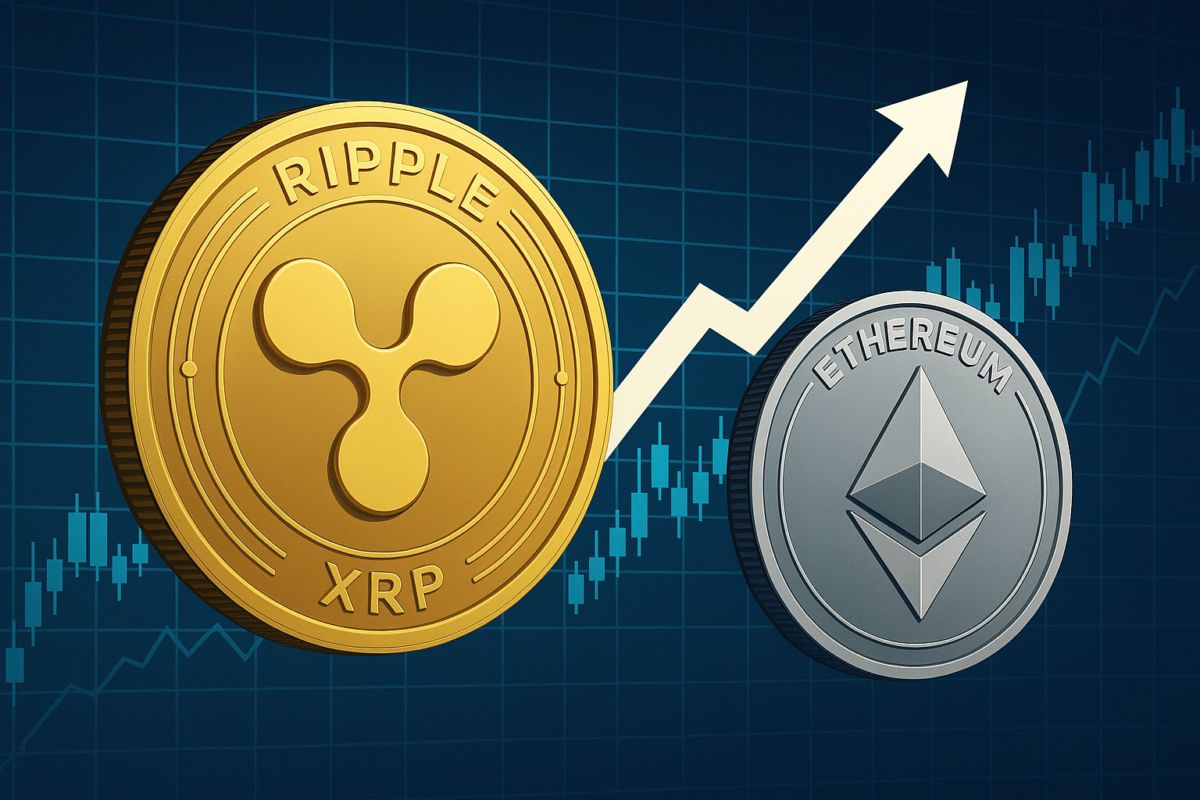Table of Contents
- What Are Augmented Reality Games?
- The Gaming Industry Before and After Augmented Reality Games
- The Benefits that Augmented Reality and Crypto Offer to the Gaming Industry
- The Future of Augmented Reality Games
The gaming industry is on the brink of a revolutionary transformation driven by the intersection of augmented reality (AR) technology with cryptocurrency and blockchain innovations. Augmented reality games have already captivated audiences by blending virtual elements seamlessly into the real world, offering immersive and interactive experiences.
Now, with the integration of cryptocurrency and blockchain, these AR games are poised to redefine the gaming landscape even further.
In this article, we'll explore the intersection of AR, cryptocurrency, and blockchain and how this fusion is reshaping the gaming industry, offering new incentives, ownership structures, and economic opportunities for players and developers alike.
What Are Augmented Reality Games?
Augmented reality games are interactive experiences that blend digital content with the real-world environment.
These games use AR technology to overlay computer-generated images, sounds, and other sensory elements onto the user's view of the physical world.
Players typically interact with augmented reality games through a smartphone, tablet, or AR headset, using the device's camera and sensors to detect and augment their surroundings.
Augmented reality games can range from simple mobile apps that overlay virtual objects onto the user's camera feed to more immersive experiences that involve physical movement and exploration.
An example of a well-established augmented reality game is Pokémon GO, which allows players to catch virtual creatures in real-world locations.
The Gaming Industry Before and After Augmented Reality Games
In the past, gamers were explorers trapped inside glowing boxes. They'd fight monsters and solve puzzles, but only on TVs or computer screens. Their tools were plastic controllers.
The games were fantastic, with incredible stories and mind-bending challenges. You could be anyone – a fearless warrior, a wise wizard, or a sly thief. But the adventures were locked away on the screen, separate from the real world. And so were the rewards.
Then, something incredible happened. A game called Pokémon GO arrived in 2016. It was the first of its kind, a game that mixed the made-up world with the real world you already knew. With Pokémon GO, combining the passion for gaming with an ordinary and healthy park walk was easier and more fascinating, as virtual creatures like Pikachu hide around you! This was achieved through Augmented Reality (AR), and it changed everything.
These AR games were like those choose-your-own-adventure books came to life, but even better. You weren't just watching stories anymore; you were living them, right in your own neighborhood.
It was a completely new way to play, a way that blurred the lines between what's real and what's imagined.
Even so, the fun of catching virtual creatures eventually wore off, and there wasn't much reason to keep playing besides bragging rights.
A new approach was necessary, so that's where crypto-augmented reality games come in. They take the amazing concept of AR gaming and add a whole new layer of incentive – cryptocurrencies and in-game items you can actually own.
The Benefits that Augmented Reality and Crypto Offer to the Gaming Industry
If AR previously delivered substantial advantages to the gaming sector, with the integration of blockchain and cryptocurrency technologies, this combination now holds the potential to significantly amplify the benefits for the industry.
Here's where the magic of blockchain and crypto truly comes alive in AR gaming:
-
Owning your in-game treasures - Unlike traditional AR games, where captured creatures or collected items vanish when you log off, crypto AR games leverage blockchain technology. Blockchain acts as a super secure digital record book, keeping track of who owns what in the game. This means that rare Pokemon, powerful weapons, or unique virtual outfits you acquire become yours – verifiable digital assets;
-
Earning through play - Crypto AR games introduce the concept of "play-to-earn." Remember how catching Pokemon eventually felt repetitive? Crypto AR injects real value. By completing quests, battling other players, or exploring the AR world, you can earn cryptocurrency or in-game tokens. These tokens can have real value, allowing you to sell them for cash or use them to purchase even more exciting in-game items. Take SpaceCatch for instance, which is a recently launched crypto AR game that allows you to earn the $CATCH token by protecting your city from alien invasions through AR battles. This "play-to-earn" model ensures your efforts are rewarded, making the game not just fun but potentially lucrative.
-
A Thriving Marketplace - The world of crypto augmented reality games enables a digital marketplace where players can trade their hard-earned in-game items with others. This opens doors for strategic buying, selling, and even building a collection of valuable digital assets within the game's ecosystem.
-
Community Building and Governance - Blockchain technology can also empower players in some crypto augmented reality games. By owning in-game assets, players can participate in the governance of the game itself. Through Decentralized Autonomous Organizations (DAOs), players can vote on important decisions like future game features or rule changes. This facilitates a sense of community ownership and empowers players to shape the games they love.
The Future of Augmented Reality Games
Looking ahead, we anticipate that AR games will become even more exciting. As we observe an increasing number of AR games integrating cryptocurrencies and blockchain technology, our optimism about the future of this gaming sector grows stronger.
It's not just about catching imaginary creatures anymore! Now, you can explore your surroundings, battle other players, or complete challenges, all while earning rewards.
This "play-to-earn" system is revolutionizing how we approach gaming. It's not only about having fun (although it's still incredibly enjoyable), but it can also be financially rewarding in the real world.
The play-to-earn market is already huge – according to one report, the Play-to-Earn NFT Games market size was valued at $3292.73 million in 2023 and is expected to grow at a CAGR of 17.93% throughout the forecast period, reaching $8856.95 million by 2030! That's a significant amount of virtual treasure!
With such promising figures, it's clear that this market has immense potential for the future, and we anticipate even more exciting developments to come.
Disclaimer: This article is provided for informational purposes only. It is not offered or intended to be used as legal, tax, investment, financial, or other advice.
Investment Disclaimer


